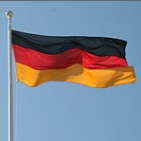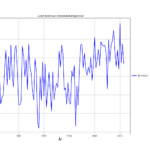To provide the best experiences, we use technologies like cookies to store and/or access device information. Consenting to these technologies will allow us to process data such as browsing behavior or unique IDs on this site. Not consenting or withdrawing consent, may adversely affect certain features and functions.
The technical storage or access is strictly necessary for the legitimate purpose of enabling the use of a specific service explicitly requested by the subscriber or user, or for the sole purpose of carrying out the transmission of a communication over an electronic communications network.
Den tekniska lagringen eller åtkomsten är nödvändig för det legitima syftet att lagra inställningar som inte efterfrågas av abonnenten eller användaren.
The technical storage or access that is used exclusively for statistical purposes.
Den tekniska lagringen eller åtkomsten som används uteslutande för anonyma statistiska ändamål. Utan en stämningsansökan, frivillig efterlevnad från din Internetleverantörs sida, eller ytterligare register från en tredje part, kan information som lagras eller hämtas endast för detta ändamål vanligtvis inte användas för att identifiera dig.
The technical storage or access is required to create user profiles to send advertising, or to track the user on a website or across several websites for similar marketing purposes.








Det är inte en sekund för tidigt att inrätta en slik ’expertpanel’, även om jag hyser stor tveksamhet mot ordet ’expert’, dess undersökningsresultat måste emellertid ligga till grund för att kunna lagföra korruptionen. Där finns enorma mängder stoff att gräva i – såväl inom miljö- som klimatområdet.
Hur kan det t.ex. gå till/tillåtas att ett utpräglat särintresse som vindkraftindustrin, som därtill är enormt samhällskadlig [letal], får en gräddfil avseende prövningslagstiftning för etablering? Kan det månne bero på att jordbruks- och miljödepartementet tillät endast en enda näringslivsrepresentant företräde när proppen behandlades – gissa varifrån denne kom…? Och/eller föreligger där inom diverse beslutsfattande nivåer jäv…, o/e ’värre’…
Go figure!
Se f.ö. replik i SvD från tvenne VKV-kramare, länk:
http://www.svd.se/opinion/brannpunkt/artikel_3789319.svd
Mvh/TJ
Telegraph: Waste is built into the EU budget
Open Europe’s 50 examples of EU waste, published yesterday, are reported in the Mail, Express, Telegraph and Polish paper Dziennik. Open Europe’s Mats Persson is quoted saying, ”The European Commission tries to put the blame for fraud and waste on the member states, but the real problem is the EU budget itself. Too often, EU money is wasted on inefficient projects which are based on unrealistic expectations, or for which there is no real demand. Because of the way the EU’s spending schemes are set up, bizarre or wasteful projects can receive funding which never would have received money if subject only to national spending priorities. Unfortunately the focus of the EU budget is to get the money out of the door, not to spend the money wisely.”
Meanwhile, several papers note the opinion from the European Court of Auditors yesterday, in which the auditors refused to sign off the EU’s budget for the 15th consecutive year, while giving a clean opinion to the reliability of the Commission’s own accounts for the second year in a row, and signing off the bulk of agricultural spending for the first time. The Mail quotes Shadow Europe Minister Mark Francois, saying there was still ”unacceptable mismanagement” in the way the EU budget is spent. ”There are also still too many shocking examples of wasteful or pointless expenditure of taxpayers’ money. This strengthens the already powerful case for major reform of the EU budget”, he said.
EUobserver notes that the auditors said that some €2.7 billion from the EU budget should not have been paid out in 2008, flagging up the EU’s regional spending as particularly prone to errors. The auditors also said that Spain, Italy and Portugal are responsible for the bulk of the financial errors detected by European auditors in the field of regional policy.
Läs detaljerna här:
http://www.openeurope.org.uk/research/top50waste.pdf
Corruption and sustainable development
Outcome of the 13th International Anti-Corruption Conference
http://www.13iacc.org/en/IACC/Conference_Agenda
Utdrag:
“A series of workshops examined the scope for corruption within both climate change governance systems and revenues flows associated with carbon markets and carbon credits. It was noted that allegations of corruption are already under investigation and that significant corruption risks have been identified in several areas of carbon-related financing, such as authentication of Clean Development Mechanism (CDM) projects.
It was further noted that the Kyoto-based system for combating climate change system is in danger of failure if there is a loss of trust in its efficacy by governments, businesses, financial markets and civil society. Indeed, there are already strong allegations that the Kyoto-based system has been subject to ‘policy capture’ that has prevented benefits being realised within developing countries; and that short-term considerations of creating an effective market have over-ridden the long-term benefits of a system that both reduces greenhouse gas emissions and alleviates the negative impact of climate change on those most affected by it.”
Jag tänkte när jag såg rubriken i morse – bra att man talar klartext om allt detta -inklusive alla färgade vetenskapliga arbeten – och alla lycksökare som söker få statliga bidrag för sina märkliga idéer – men han sköt tyvärr lite bredvid målet.
Ett bra inlägg, men problemet är större än så, FN är genomkorrupt, när Ahlenius åkte ner till Balkan så var hon omutbar och började röja upp, hela FN organisationen på plats var korrupt från topp till bott. Givetvis förskte de högre FN tjänstemännen på Balkan få bort Ahlenius. Glöm inte att Kofi Annans son var inblandad i en Olje-skandal under hans ledartid för FN.
Har släkt som lett FN trupp utomlands och det är otäcka historier som kommer fram, fattiga FN soldater från 3:e världen gör vilda svarta affärer på plats, inget fungerar om du inte betalar.
Dock att kritisera FN är inte PK så det görs aldrig i media.
Sverige borde gå ur FN, eller ännu hellre lägg ner FN och börja om.
Det finns säkert gott om korrupta och oskickliga tjänstemän på många håll. Men med tanke på hans insatser i Tomas Quick-målen: Är van der Kwast den bäste att tala om att ”sopa”???
Inga-Britt Ahlenius sitter nu i FN-skrapan i N.Y. och verkar ha blivit tystad. Synd på så goda och modiga ”ärtor”. Men det var ju Göran Persson som landsförvisade henne
En annan Persson talar ut:
Open Europe: The EU’s budget is unmanageable
Open Europe’s Mats Persson has a comment piece on EUobserver responding to a piece by EU Commissioner Siim Kallas regarding the EU budget and the European Court of Auditors’ annual report. Mats argues, ”The fundamental problem of waste and mismanagement involving EU money lies primarily with the budget itself – not with the member states, although they should not entirely escape blame…Mismanagement and waste in the EU budget are two sides of the same coin. They both stem from the size, complexity and irrational nature of the EU budget. Both receive their thrust from the blurred line between spending and accountability, owing to the set-up of the EU’s budget programmes. And both can be radically reduced by simplifying the budget, cutting down on the spending and by repatriating a large chunk of regional spending and the CAP to member states.”
Mats concludes, ”As Commissioner Kallas himself points out: ’One cannot reasonably expect an EU official from an office in the Commission’s headquarters in Brussels to know what best fits the needs of a small town in the West Midlands – this is for the local authorities to say.’ Exactly, but this begs the question why in the world the EU is involved in regional spending and rural development in the first place?”
Meanwhile, Open Europe’s ”50 new examples of EU waste” continues to receive coverage across Europe. Open Europe’s Sarah Gaskell appeared onHungarian National Radio arguing that the examples demonstrate the need for a re-think of the EU budget, and that the Commission must take some responsibility for the waste in the budget.
EUobserver: Persson Dziennik TVN24 Transindex Mail: Utley
Jag vet att Ahlenius har uppvaktats om att rota i dessa saker – men som redan sagt – hon verkar vara helt tystad i detta och allt annat. Inget har hänt överhuvudtaget. Man borde undra varför ? Jag själv har det egna svaret klart och instämmer i att FN är genomkorrumperat – något som man speciellt i Sverige har svårt att ta till sig, efter dess ständiga glorifiering alltfrån Dag Hammarskölds generalsekreterartid.
EU funds for wind farms in the hands of the Sicilian mafia
Le Monde reports that four people were arrested and more than €153 million confiscated yesterday in Sicily and Campania due to fraud in the wind farms sector. The seven wind farms in question were partly paid for with public funds, including EU money. In order to qualify for public funding, the ’entrepreneurs’ forged false documents to prove that they owned land and bloated the amount of capital that had to be matched by EU funds through fake invoices. The article notes that the mafia siphoned off a big chunk of the public subsidies.
Le Monde Open Europe press release Open Europe research
Peter Stilbs
När jag anlände till Genève 1969 och fick delegationsansvar för inköp inom mitt gebit så kallades jag in till inköpschefen för instruktioner om bl.a. affärsmoral/etik. Ett av råden var: ”Om det kommer en ny potentiell leverantör och hävdar att han levererar till FN så visa denne vänligt dörren då de har en visad benägenhet att sprida kuvert med sedelinnehåll omkring sig.”
Lars G #9: Nedan fanns att läsa i FT i maj i år (har tyvärr ej länken till artikeln):
Financial Times 090505 Mafia link to Sicily wind farms probed
By Guy Dinmore in Palermo, Italy
Published: May 5 2009 03:00 | Last updated: May 5 2009 03:00
Anti-Mafia magistrates in Sicily have opened a sweeping investigation into the wind power sector where local officials, entrepreneurs and crime gangs are suspected of collusion in the construction of lucrative wind farms before their eventual sale to multinational companies.
Italian and EU subsidies for the building of wind farms and the world’s highest guaranteed rates, €180 ($240, £160) per kWh, for the electricity they produce have turned southern Italy into a highly attractive market exploited by organised crime.
Roberto Scarpinato, a veteran anti-Mafia prosecutor in the regional capital Palermo, told the Financial Times that his investigation, which began last week, was focused on the three large provinces of Palermo, Trapani and Agrigento.
An earlier investigation into a case near Trapani in western Sicily resulted in eight arrests in February, leading to accusations of a suspected nexus between a leading Mafia family that offered money and votes in exchange for permits to construct wind farms.
”Operation Wind” revealed Mafia promises to local officials in Mazara del Vallo of money and votes in exchange for help in approving wind farm projects.
The Mafia suspects were alleged to be linked to Matteo Messina ”Diabolik” Denaro, a fugitive clan boss on ltaly’s most wanted list.
Prosecutors suspect the hand of the Mafia in fixing permits and building wind farms that are then sold on to Italian and eventually foreign companies.
In an effort to assert its control over the sector, the Mafia is suspected of destroying two wind towers that were in storage in the port of Trapani after their delivery by ship from northern Europe, local officials told the FT.
”It is a refined system of connections to business and politicians. A handful of people control the wind sector. Many companies exist but it is the same people behind them,” said Mr Scarpinato, whose investigations have focused on the evolution of the Mafia into a modern business organisation.
Sicily’s Cosa Nostra is evolving and finding new business opportunities, including the renewable energy sector, by exploiting its historic grip over territory, construction and ability to corrupt local officials.
Several wind farms built by companies suspected of being linked to the Mafia have not functioned for one or two years, in some cases because of shoddy construction. ”This is the amazing thing, that developers got public money to build wind farms which did not produce electricity,” the prosecutor said.
The regional governments in Sicily, as well as Calabria and Basilicata on the mainland, have suspended the authorisation of new wind farms in part because of suspected criminal involvement and confusion over the real ownership of the ventures.
Most, if not all, of Sicily’s wind farms began as projects by local developers, some of whom speculated in a secondary market for permits. Once built, the majority were sold on through Italian intermediaries to multinationals. International Power of the UK is the largest wind power operator in Italy. Others include Italy’s Enel and Germany’s Eon through its purchase of part of Endesa of Spain in 2007. France’s EDF also has assets. While the international companies knew the identity of their Sicilian developers, there is no evidence they were aware of Mafia involvement.
Although Italy is lagging badly in meeting its EU 2020 emissions targets, the renewable energy sector is growing strongly and attracting considerable foreign investment. International Power became the single largest operator in 2007 with its purchase of the Maestrale portfolio of mostly Italian wind farms, including five in Sicily, for €1.8bn
Italy ranks fourth in Europe in terms of installed wind power capacity.
Kanhända är artikeln i ’Le Monde’ du anger ett konkret resultat av innehållet i FI artikeln…?
Där finns, som sagt, en hel del att gräva i och efter.
Mvh/TJ
TJ – Mycket intressant! Och tyvärr också skrämmande!
Har träffat Inga-Britt Ahlenius några gånger, men aldrig tagit upp frågan, skall försöka göra detta nästa gång jag får möjligheten.
I Miljö- och jordbruksutskottets betänkande 2008/09:MJU27, ’Prövning av vindkraft’ länk:
http://www.riksdagen.se/webbnav/?nid=3322&rm=2008/09&bet=MJU27
framgår att:
” Utskottet har i detta ärende uppvaktats av Svensk Vindenergi.”
Utskottet har alltså låtit sig uppvaktas av en enda intresseföreträdare och denne är just den vars enda intresse är att uppnå en förenklad prövning av VKV-etablering.
Och si… sedan den 1 augusti har en ny lagstiftning trätt ikraft, bl.a. innebärande att det lagfästa kommunala självbestämmandet inskränks, men, som regeringen uttryckt; ” … medger //..// men anser denna inskränkning vara godtagbar.”
Rysare!
🙁
Mvh/TJ
Nu får vi se vem som kommer först. Maffian eller WMO?
Water Found on Moon, Scientists Say
The discovery came out of a mission a month ago in which a
satellite hit into a crater near the lunar south pole.
Read More:
http://www.nytimes.com/2009/11/14/science/14moon.html?hp&emc=na
Det handlar snarare om vem som ’kommer’ tvåa.. 😉
Ettan är redan där och – etablerad 🙁
Mvh/TJ
Anders Molin (6)
Eller kanske Kwasten är ute efter ett EU-jobb??
ThomasJ (12)
Det ska nog vara €180/MWh, men 180 öre/kWh är ju dubbel subvention jämfört med andra länder
ebjons #18: Visst ska det vara per MWh – uppenbarligen ett ’typo’ av artikelförfattaren (jag har bara kopierat in artikeln). Frågan reses varifrån dessa ohemula subventioner härstammar? Vem betalar dessa enorma summor? Jo, det är deFacto ’duar & jagar’ direkt/indirekt som får stå för notan och detta för att fylla på diverse maffia o/e –liknande organisationers (inte enbart italienska..) plånböcker och för inget, säger inget annat.
Att sedan energipriserna via andra dubiösa systems [läs: NordPool] manipulationsmöjligheter går upp,
oavsett hur kostnadseffektivt energin kan produceras, visar ju på hur ini humhum fel överheten har, har haft och, suck, troligast kommer att ha i dessa avseenden. De börjar la måhända klia sig i mjället först då, när energiberoende basindustrier packar resväskorna….
’Tänkte inte på dé…’ [typ patentkontoret]. 😉
Men det är så dags då…
Mvh/TJ
Kjell-A Jönsson
Stora organisationer som EU och FN leder per automatik till korruption , nepotism och därmed sammanhängande kabinettspolitik samtidigt som byråkratin sväller.
Klimatalarmismen är en god inkomstkälla för många liksom de traditionella religionerna..
Vad göra
Kjell-A Jönsson